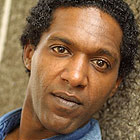 Choosing which film should win the Index on Censorship Freedom of Expression award was a tough process for the judges, writes Lemn Sissay
Choosing which film should win the Index on Censorship Freedom of Expression award was a tough process for the judges, writes Lemn Sissay
I’ve been led down the winding stairs into a gloomy room in the basement of an east London office block. It’s full of locked files and cabinets and boxes. In the centre of the room is a long table and seated are the judges. We’re here to decide the winners of the Index on Censorship Freedom of Expression Awards, announced at a ceremony in London last night. The awards were launched in 2000 to honour those who, often at great personal risk, have given voice to issues and stories that would otherwise have gone unnoticed. There are five awards in total, the TR Fyvel Book award, the Bindmans Law and Campaigning award, the Economist New Media award, the Guardian Journalism award and the Index Film Award, the first to be discussed.
There are four contenders: Battle for Haditha, Ahlaam (Dreams), Black Gold and 12.08 East of Bucharest. Battle for Haditha, directed by Nick Broomfield, is based on real events. But a judge enlightens us that charges against some of the soldiers have recently been dropped. With a QC on the judging panel this became a vote-changing issue. The next film, East of Bucharest, was hilarious but weaker, we felt.
Though we are all respectful of each others’ opinion, there’s only one film I want to win. I forget that the other members are thinking the same thing — but with possibly different winners in mind. One by one we discuss the remaining two films. It’s not easy this. But a consensus is beginning to emerge. The remaining two films are the contenders, not by default but by design.
I make the case for my choice. There is only one person left to speak. Maureen Freely — academic, writer and translator of Nobel Prize winner Orhan Parmuk — and I are immediately thrown into confusion. Film critic Mark Kermode doesn’t necessarily agree that our film is the winning film. Like the smart staff member at a team-bonding away day, Kermode gently suggests that we all consider our various opinions and discuss it some more.
I am on the edge of suggesting arm wrestling or an out and out brawl but under the circumstances I keep schtum. One contender in the top two is shot mainly in the country of my parents, Ethiopia. It is about the importation of coffee from Ethiopia into the hands of the multinationals who laud Ethiopian coffee as the most sought after, the source of all coffees. Black Gold is an articulate piece of campaigning film. It could change our coffee drinking habits once we know how the farmers are treated. And it’s all shot in my parents’ country. My father was a pilot for Ethiopian airlines. By not choosing Black Gold am I somehow enacting cultural parenticide? Guilt sets in. I’m wavering.
The other major contender is Ahlaam (Dreams), directed by Mohamed Al Daradji, who fled Iraq under Saddam Hussein and returned when he was overthrown. On his arrival, the experience of seeing numerous psychiatric patients wandering the streets served as the inspiration for this, his first feature film, which was shot on location in Baghdad in 2004 under brutal circumstances. Mohamed and three of his crew members were once kidnapped twice in the same day. Performed by Iraqi actors, it is filmed in a Rosselini realism style, focussing on a mental institution and the interweaving narratives of three characters – their past and their present — as war begins. Ahlaam is the central female character. This is a story truly from the other side. There is not one American soldier in the entire film — only the evidence. This is a story that would otherwise not be heard.
The debate raged: the hands on the clock spun in concentric circles. The water bottle became empty, full and empty again. We rocked back and forward between the two films. What with the gloomy East End basement room and night closing in, we could have been organising a bank heist. After much discussion, the editor of the Mail on Sunday, Peter Wright, Rabinder Singh QC, film critic Kermode, Freely and I make ready. The hands-in-the-air voting moment arrives in a delicate Mexican wave. There was no doubt about it. The best film won: Ahlaam (Dreams).
Some years ago on the altogether different set of Where the Heart is, in Marsden Yorkshire, I naively said that acting was a kind of therapy because the actor could spend time away from himself. ‘It’s not true,’ an actor replied. ‘To find the character we have to go deeper inside ourselves.’ One of the lead actors in Alhaam spent 12 years in jail under Sadaam’s regime. In the film he plays a character locked in a mental institution. I wonder where he went to, inside himself, to play this part. There is a whisper of another film hiding in the rushes: The Making of Ahlaam. Wonderful.





